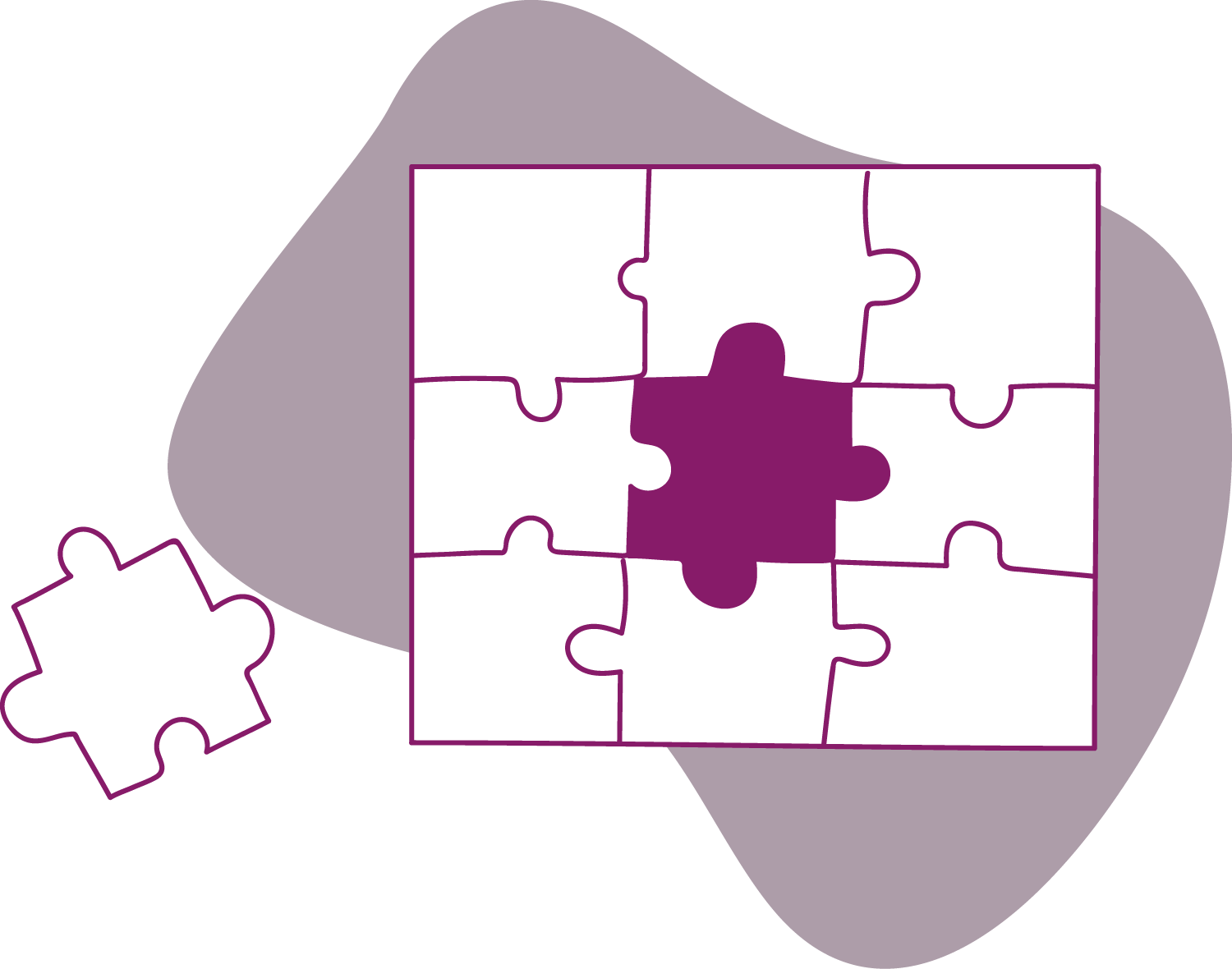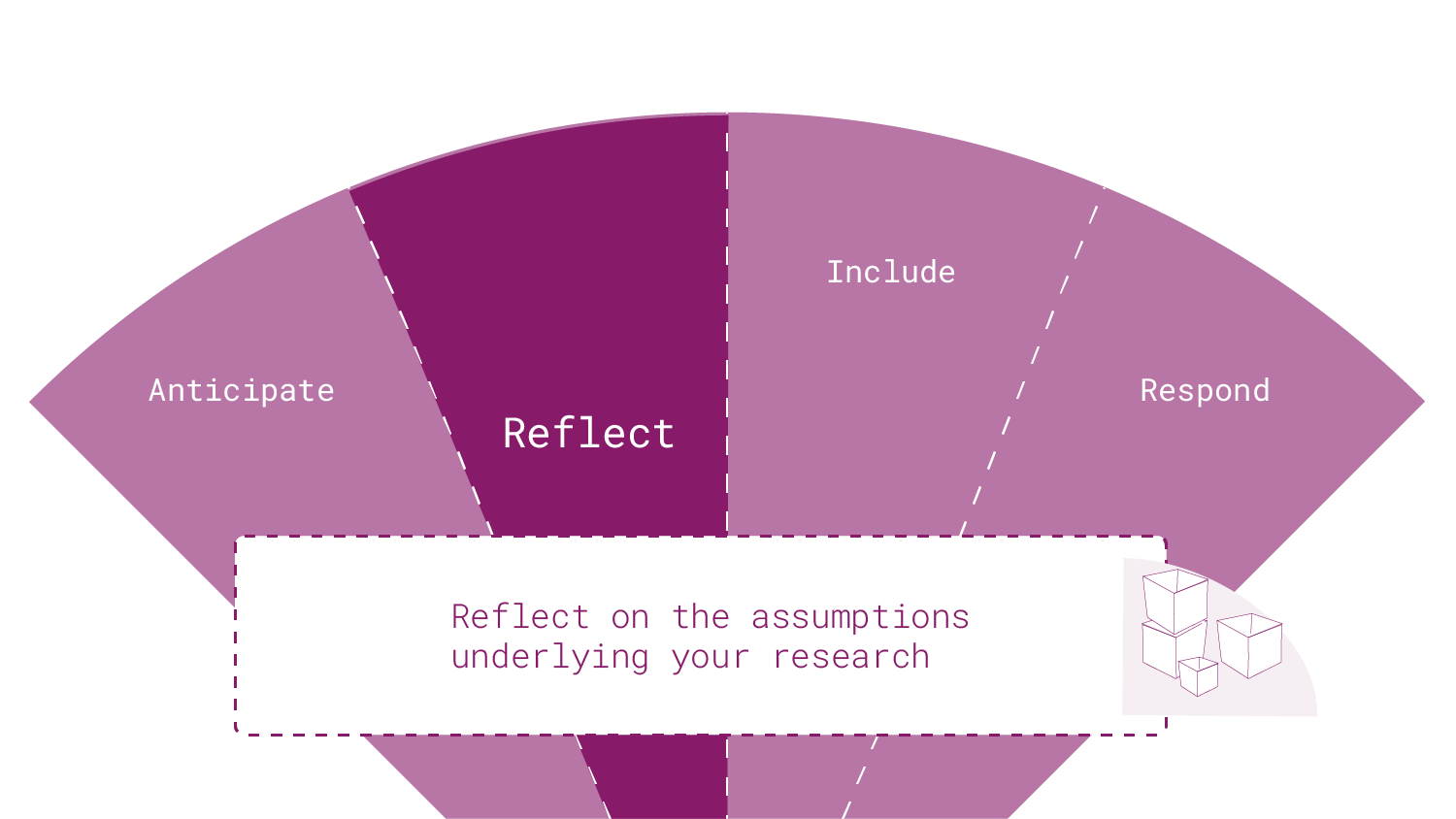FCAI Ethics Exercise Tool
Start reflecting on ethics
The purpose of this Ethics Exercise Tool is to support FCAI researchers in identifying, explicating, and generally working with ethical, societal, and legal issues related to their research. The scope of the tool ranges from individual projects to entire research programs, and it is meant to be used iteratively during planning, executing, and communicating research. The tool is based on the premise that due to its context dependence, ethical reflection cannot be outsourced: it remains the responsibility of researchers working with the substance in question.
The tool’s first, overarching goal is to tie research to its wider societal context through ethical reflection: a framework for systematically thinking about desirable and undesirable futures that will help avoid pitfalls and steer towards the greater common good.
The tool’s second, immediate goal is to help FCAI researchers elaborate ethical issues related to their work. This will help them write the societal impact statements required by an increasing number of publication forums.
Obviously, not all questions are equally relevant to all programs and projects, but careful reflection on how a question may be relevant, and why it may not be relevant at all, can be useful.
It is important to remember that ethical questions are also linked to legal conditions and human rights obligations. This means that research design and implementation need to comply with existing legislation and case law, e.g., data protection, equality, and non-discrimination. When critical reflection raises such questions, consult lawyers at your university’s research support services.
How the Ethics Exercise works
The Ethics Exercise consists of generic questions for reflection at different phases in the program/project. Recognizing that not all projects and programs follow the same pattern, the questions have been designed to encourage revisiting them periodically.
The idea of the Ethics Exercise is based on four approaches:
Anticipation: carefully examine both the goals and potential unintended consequences that may arise from your research.
Reflexivity: reflect on the assumptions underlying your research.
Inclusion: involve relevant societal actors in research activities from an early stage, and ensure continuous, open dialogue about desirable and undesirable outcomes.
Responsiveness: align research activities with the new perspectives, insights, and values that emerge through anticipation, reflexivity, and inclusion.
In thinking about the questions, keep in mind
the foundational values of human autonomy, equality, and prevention of harm;
complying with and supporting human rights, protection of privacy, and GDPR.
Begin the Ethics Exercise
You can use the Ethics Exercise Tool either completely privately or you can share your answers with FCAI's Ethics Advisory Board (EAB), allowing us to make the tool even better in future. No answers submitted through the Ethics Exercise Tool will be shared outside the EAB. You can also find the list of the Ethics Exercise questions below.
List of the Ethics Exercise questions
1. ANTICIPATION
Anticipate ethical aspects:
What positive impacts could your research have, e.g. on societal and environmental wellbeing? For whom?
What negative impacts could your research potentially give rise to? For whom?
What long-term impacts and emergent consequences may your findings have? To what extent will you be able to predict them in the near future and after decades? Think about the impact the research has and its potential deployment by public and private parties.
Is there a possibility that someone could use your result for criminal or otherwise unethical purposes (e.g., dual use)? How do you protect your work from such misuse?
Can you imagine possible scenarios where the outcomes of the program/project may be misrepresented or misconstrued? In the media or public debate? By certain interest groups?
To what extent are privacy, data protection, and data control relevant to your research? How are they ensured in practice? For example, does your data collection require informed consent from the participants? Should your analysis ensure full anonymity for its research subjects?
2. REFLEXIVITY
Reflect on the underlying assumptions and constraints that affect your research:
What do ethical values, such as transparency, fairness, non-discrimination, and well-being mean in your program/project? How are they realized?
What actions should be taken to ensure research integrity and compliance with ethical and legal standards in the program/project? By whom? How does the program/project ensure that those responsible have sufficient capabilities for doing so?
What effects could a potential breach of confidentiality have and what might they be?
Have you considered how you would explain, in a relevant and understandable way, the operation of your solution to those affected by its use?
Can you ensure that the results of the given algorithm are independent of given sensitive variables, such as the traits of individuals, which should not correlate with the outcome in a discriminatory way (e.g., gender, ethnicity, sexual orientation, disability, etc.)?
3. INCLUSION
How do you identify relevant societal and other actors outside your research team that should be included in identifying ethical issues?
Who will be involved in identifying the ethical issues and possible solutions to them in your program/project, and how will they do it?
Have certain groups of potential participants been excluded accidentally or on purpose from the data used, and how may this affect your analysis?
Can you ensure that the developed solutions are accessible to different vulnerable groups, e.g. people with physical or mental limitations?
How can you explain the actions of AI and justify them to users and other stakeholders with whom the AI systems interact?
How representative is the model for different groups, and how can this be assessed?
4. RESPONSIVENESS
Would you be able to change the course of your work at any phase of the program/project in response to unforeseen ethical issues, and how could you do this?
Which practices, structures, or mechanisms do you have in place to ensure that you can respond to new ethical insights?
Further advice and institutional support »
Each organization has its own guidelines on legal affairs and ethics, as well as guidelines related to data management and secure processing of personal data:
Aalto University guidelines:
https://www.aalto.fi/en/research-art/research-ethics-and-research-integrity (in English), https://www.aalto.fi/fi/tutkimus-ja-taide/tutkimusetiikka-ja-hyva-tieteellinen-kaytanto (in Finnish)
Legal advice: see https://www.aalto.fi/en/service-entities/research-and-innovation-services
https://www.aalto.fi/en/services/aalto-university-data-protection-policy
https://www.aalto.fi/en/services/general-instructions-for-secure-processing-of-personal-data
University of Helsinki guidelines:
https://www.helsinki.fi/en/research/services-for-researchers/research-ethics (in English), https://www.helsinki.fi/fi/tutkimus/tutkijan-palvelut/tutkimusetiikka (in Finnish)
University of Helsinki legal advice for researchers are given by the legal team of the research services.
https://flamma.helsinki.fi/en/group/tutkimuksen-tuki/tutkimuksen-tietosuoja-asiat. For sensitive data, a proposed suggestion is to use CSC ePouta https://research.csc.fi/-/epouta.
VTT guidelines:
See the VTT Handbook. VTT has its own ethical board.
For legal advice: VTT Legal.
Literature »
Algorithm Watch: AI Ethics Global Inventory. https://inventory.algorithmwatch.org/
Bietti, E. (2020). From ethics washing to ethics bashing. In Proceedings of the 2020 Conference on Fairness, Accountability, and Transparency, pp. 210−219. https://dl.acm.org/doi/abs/10.1145/3351095.3372860
Corbett-Davies, S., & Goel, S. (2018). The measure and mismeasure of fairness: a critical review of fair machine learning. ArXiv preprint. https://arxiv.org/abs/1808.00023
European Group on Ethics in Science and New Technologies. Statement on Artificial Intelligence, Robotics and ‘Autonomous’ Systems. European Commission, March 2018. https://ec.europa.eu/research/ege/pdf/ege_ai_statement_2018.pdf.
Floridi, L., Cowls, J., Beltrametti, M., Chatila, R. et al. (2018). AI4People – An ethical framework for a good AI society: Opportunities, risks, principles, and recommendations. Minds and Machines, vol. 28, pp. 689–707. https://link.springer.com/article/10.1007/s11023-018-9482-5
Hagendorf, T. (2020). The ethics of AI ethics: An evaluation of guidelines. Minds and Machines, vol. 30, pp. 99–120. https://link.springer.com/article/10.1007/s11023-020-09517-8
High-Level Expert Group on Artificial Intelligence (2019). Ethics Guidelines for Trustworthy AI. European Commission, April 2019. https://ec.europa.eu/digital-single-market/en/news/ethics-guidelines-trustworthy-ai
High-Level Expert Group on Artificial Intelligence (2020). Assessment List for Trustworthy Artificial Intelligence (ALTAI). European Commission, July 2020. https://ec.europa.eu/digital-single-market/en/news/assessment-list-trustworthy-artificial-intelligence-altai-self-assessment, also https://altai.insight-centre.org/
Horizon 2020 Programme Guidance. How to complete your ethics self-assessment. European Commission, February 2019. https://ec.europa.eu/research/participants/data/ref/h2020/grants_manual/hi/ethics/h2020_hi_ethics-self-assess_en.pdf
IEEE Global Initiative on Ethics of Autonomous and Intelligent Systems (2019). Ethically Aligned Design: A Vision for Prioritizing Human Well-Being with Autonomous and Intelligent Systems, First Edition. IEEE, 2019. https://standards.ieee.org/content/ieee-standards/en/industry-connections/ec/autonomous-systems.html
References »
The questions are inspired by the New Horizon project’s ‘Thinking Tool‘ (https://newhorrizon.eu/thinking-tool/) that offers practical guidance for how to mature the societal readiness of research projects.
Do you find the FCAI Ethics Exercise Tool useful? Let us know by answering our feedback form.
FCAI Ethics Advisory Board: https://fcai.fi/ethics-advisory-board
What support would you like to see from the FCAI Ethics Advisory Board? What kinds of pointers to rules and guidelines (e.g., GDPR, ethical evaluations) would you need? Please submit your suggestions by email to the FCAI Ethics Advisory Board, eab@fcai.fi.







